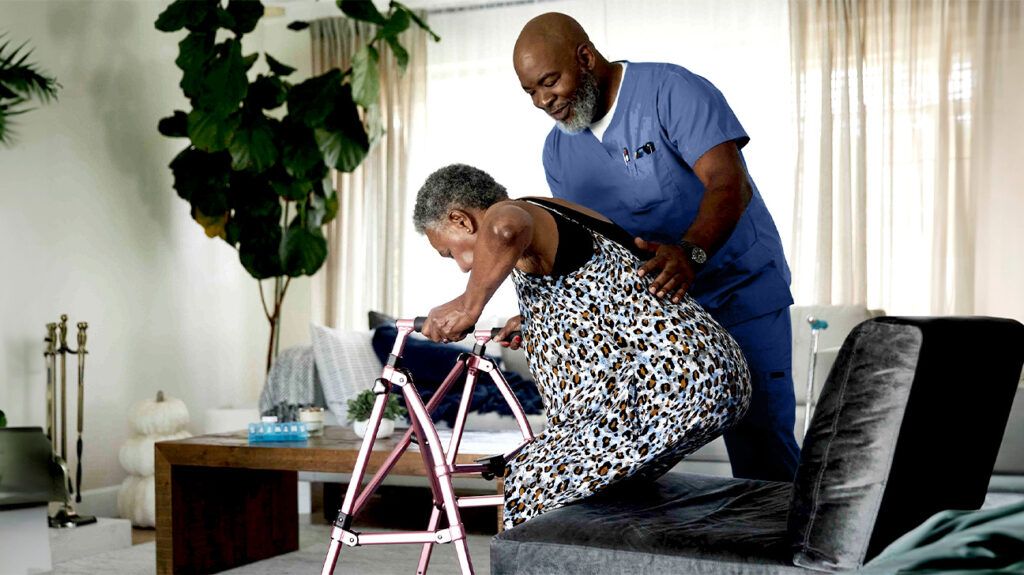Medicare Part B and Medicare Advantage offer coverage for medically necessary walkers. However, a healthcare professional must prescribe this type of durable medical equipment (DME) before Medicare covers it.
Medicare Part B and Medicare Advantage cover certain types of DME, equipment that helps people complete their daily activities.
However, rules and guidelines for coverage include the equipment being medically necessary and a prescription from a healthcare professional.
Glossary of Medicare terms
We may use a few terms in this article that can be helpful to understand when selecting the best insurance plan:
- Out-of-pocket costs: An out-of-pocket cost is the amount a person must pay for medical care when Medicare does not pay the total cost or offer coverage. These costs can include deductibles, coinsurance, copayments, and premiums.
- Deductible: This is an annual amount a person must spend out of pocket within a certain period before an insurer starts to fund their treatments.
- Coinsurance: This is the percentage of treatment costs that a person must self-fund. For Medicare Part B, this is 20%.
- Copayment: This is a fixed dollar amount a person with insurance pays when receiving certain treatments. For Medicare, this usually applies to prescription drugs.

Medicare offers coverage for DME, such as walkers.
Medicare will generally cover DME in the following circumstances:
- the equipment serves a medical purpose
- the equipment is durable, meaning it will last through repeated use
- the equipment is likely to last for 3 years or more
- the equipment is appropriate for use in the home, though you can use it outside the home as well
Under DME, Medicare covers walkers, including rollators (walkers with wheels).
For Medicare to cover walkers or rollators, the equipment must be medically necessary. Medically necessary means the supplies are required to diagnose, manage, or treat an illness, injury, condition, or symptoms of any of these.
Coverage also requires that the healthcare professional and the supplier are enrolled in Medicare.
Read more about Medicare coverage for DME.
Medicare Part B covers DME, like walkers. Since Medicare Advantage must offer the same coverage as Original Medicare (Parts A and B), it will also generally offer coverage for DME.
How Medicare pays for DME depends on the type of equipment you need. The type of equipment also defines whether a person has to:
- rent the equipment
- buy the equipment
- choose between renting or buying the equipment
Read about Original Medicare vs. Medicare Advantage.
Typically, after a person reaches their Medicare Part B deductible for the year, they will be responsible for 20% of the Medicare-approved amount for DME. The Medicare-approved amount is the fee that Medicare sets for equipment, care, or services.
The Part B deductible for 2024 is $240.
Individuals with Medicare Advantage should speak to their provider about the amount they will be responsible for when needing DME, like walkers.
Medicare resources
For more resources to help guide you through the complex world of medical insurance, visit our Medicare hub.
Medicare offers coverage for durable medical equipment (DME), such as walkers, through Part B and Medicare Advantage plans.
DME, like walkers, must be medically necessary and come with a prescription from a healthcare professional. For coverage to be approved, both the healthcare professional and the DME supplier must also be enrolled in Medicare.
Generally, a person will be responsible for around 20% of the Medicare-approved amount for this type of DME. Individuals can speak with a Medicare representative or their Medicare Advantage provider for more information on coverage and cost.
